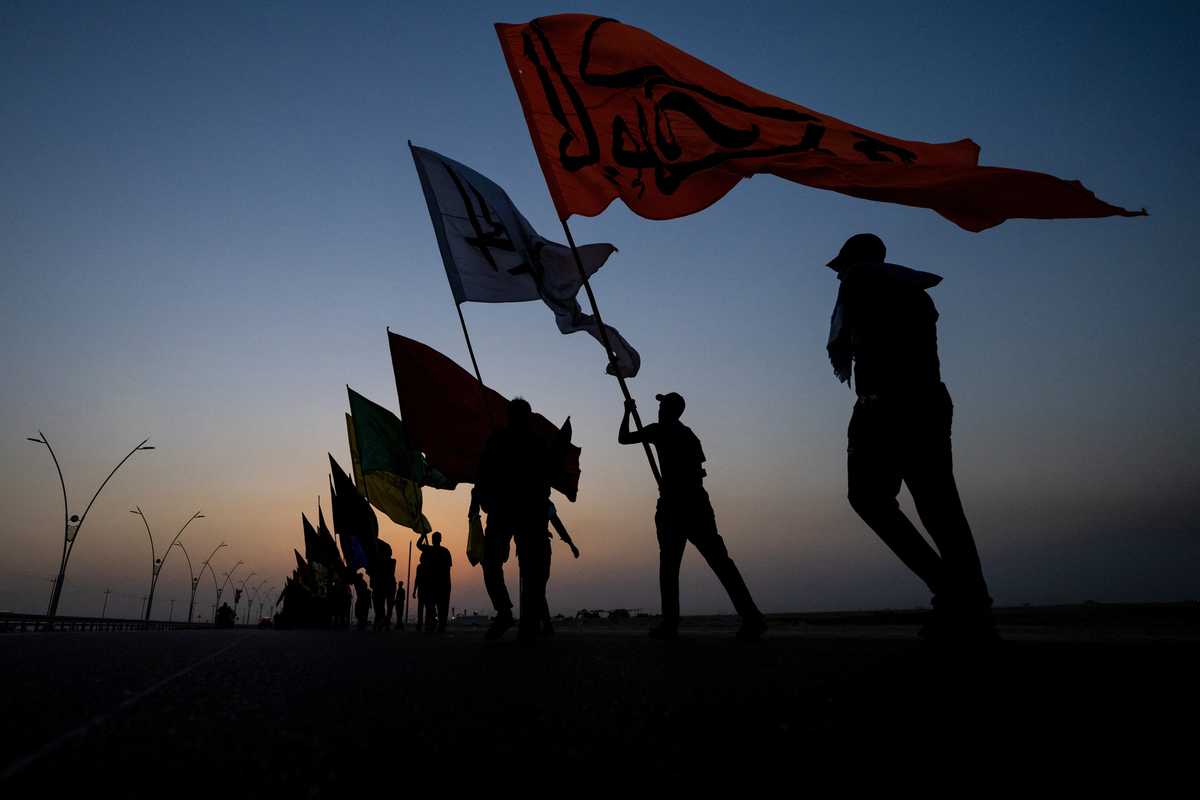Pakistan bars road travel to Iran, Iraq for Arbaeen pilgrimage over security concerns
Interior minister says air travel will continue; govt to arrange more flights for pilgrims
News Desk
The News Desk provides timely and factual coverage of national and international events, with an emphasis on accuracy and clarity.

Iranian Shia Muslims arrive on foot in Basra at sunset via the Shalamcheh border crossing, to take part in the Arbaeen pilgrimage in the Iraqi city of Karbala, on July 25, 2025.
AFP
Pakistan has barred pilgrims from travelling by road to Iran and Iraq for the annual Arbaeen pilgrimage, citing public safety and national security concerns.
Interior Minister Mohsin Naqvi announced the decision Sunday after consultations with the Ministry of Foreign Affairs, the Balochistan provincial government, and security agencies.
“Zaireen (pilgrims) will not be allowed to travel to Iraq and Iran by road for Arbaeen this year,” Naqvi posted on social media platform X. “This difficult decision was taken in the interest of public safety and national security.”
Pilgrims will still be able to travel by air, Naqvi said. Prime Minister Shehbaz Sharif has directed officials to arrange maximum flights to facilitate the pilgrimage.
The announcement followed a meeting between Naqvi and the prime minister on the new travel policy, according to a press release from the Prime Minister’s Office.
Aviation Minister Khawaja Asif has also been instructed to organize special flights for the pilgrims.
Each year, hundreds of thousands of Pakistani pilgrims travel to Karbala in Iraq to observe Arbaeen — the 40th day of mourning for the martyrdom of Imam Husain (RA), the grandson of Prophet Muhammad (PBUH), at the Battle of Karbala in 680 AD.
Iraq’s Karbala, home to the grand mausoleums of Imam Husain (RA) and his brother Abbas, becomes the center of the Shia world during Arbaeen. More than 21 million people joined the pilgrimage last year.
Pakistan plans to introduce a new travel management system starting Jan. 1, 2026. Under the new rules, pilgrims will only be allowed to travel under registered organizers. The traditional Salar System will be abolished and replaced by a Zaireen Group Organizers model.
Earlier this month, Religious Affairs Minister Sardar Muhammad Yousuf withdrew a statement claiming that 40,000 pilgrims had not returned from trips to Iran and Iraq. He later said it was based on a “misunderstanding” due to outdated paper records still being digitized.
Border coordination deal
Earlier this year, Pakistan and Iran agreed to keep their shared border open 24 hours a day to ease pilgrim travel, especially during the religious periods of Muharram and Arbaeen.
The more than 900-kilometre border runs mainly between Pakistan’s Balochistan province and Iran’s Sistan-Baluchestan region. It is a key transit route for thousands of Pakistani pilgrims heading to Iran and onward to Iraq.
The decision was made during a meeting in Tehran between Pakistan’s Interior Minister Mohsin Naqvi and Iranian Interior Minister Eskandar Momeni.
As part of the agreement, both countries pledged to keep the border operational around the clock to handle the expected rise in pilgrim traffic.
Iran also agreed to provide accommodation and meals for 5,000 Pakistani pilgrims in the city of Mashhad, and to make special arrangements for their onward journey from the Iran-Iraq border.
To improve coordination and quickly resolve issues, both sides decided to set up a dedicated hotline.







Comments
See what people are discussing